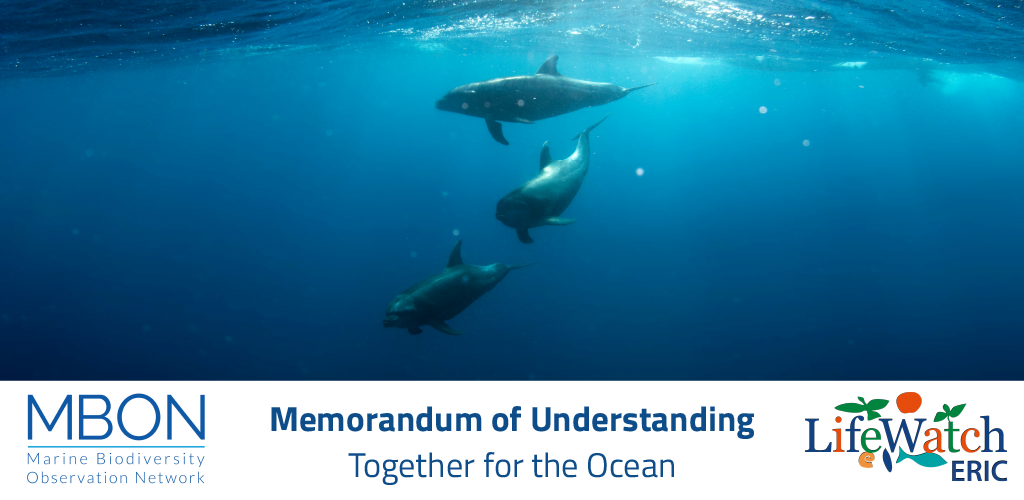
In July 2021, LifeWatch ERIC signed a Memorandum of Understanding (MOU) with the Marine Biodiversity Observation Network (MBON) in support of the co-development of marine biodiversity observation systems. The parties have signed this MOU in recognition of the need for globally coordinated, standardised and sustained ocean and biodiversity observing systems and collaborative information management systems based on standards and FAIR practices. This is also a first joint effort to contribute to the UN Decade of Ocean Science.
The MBON is a “coalition of the willing”, a community of practice which facilitates networking amongst the marine biodiversity community to improve standards and best practices in the collection, management, and publication of marine biodiversity data. Its ultimate goal is to establish a process for sustained, operational measurements of biodiversity around the globe.
The collaboration foresees (inter alia): the analysis of MBON monitoring and observing system data via LifeWatch ERIC Virtual Research Environments (VREs), the development of a VRE specifically addressing the needs of the MBON community, the building of global capacity for data collection and data management, a continuous support to the MBON community with web services, storage and computational power and an ongoing dialogue between the parties to build a global observing system.
Specifically, LifeWatch ERIC will provide access to: (a) its biodiversity observatories; its resources catalogue; the use of disruptive technologies for FAIR-compliant data and services (LifeBlock); use of disruptive technologies on Virtual Research Environments (VREs) and Workflows towards reproducible analytics (Tesseract); access to LwOS (LifeWatch ERIC Organisational System), and more.
The MOU has a duration of five years and is renewable.